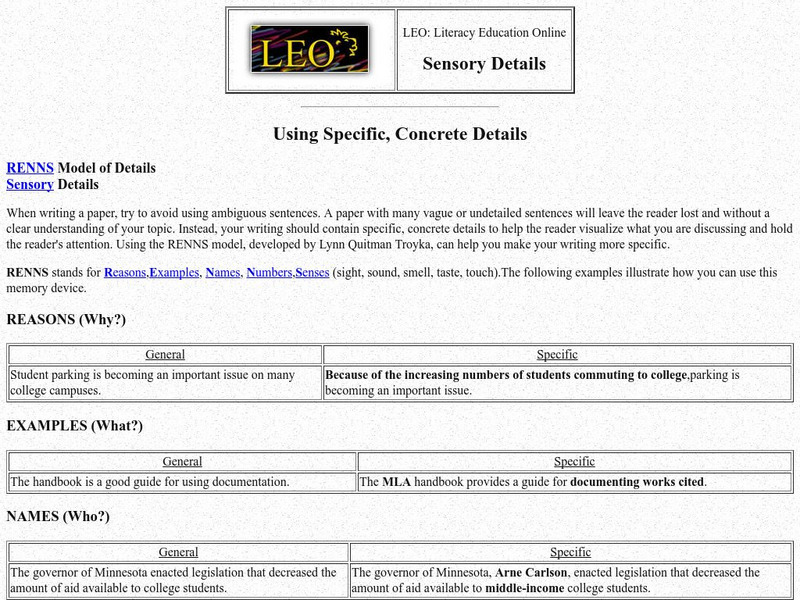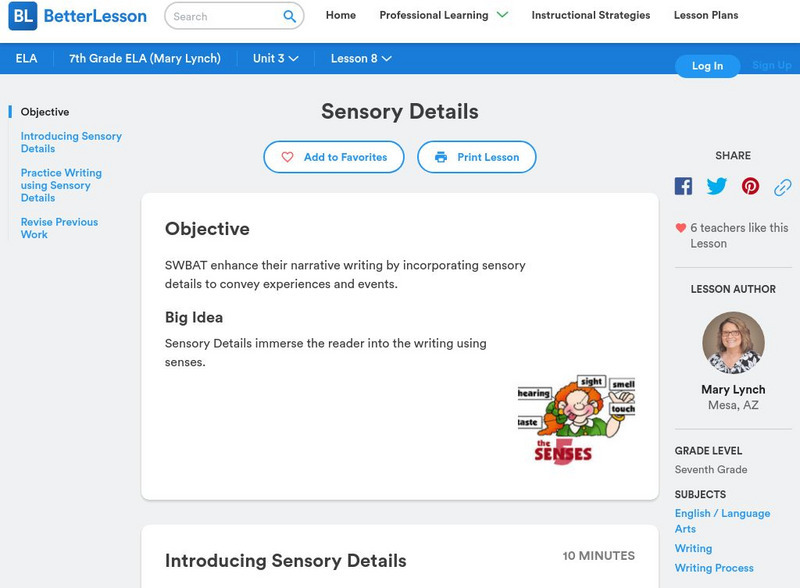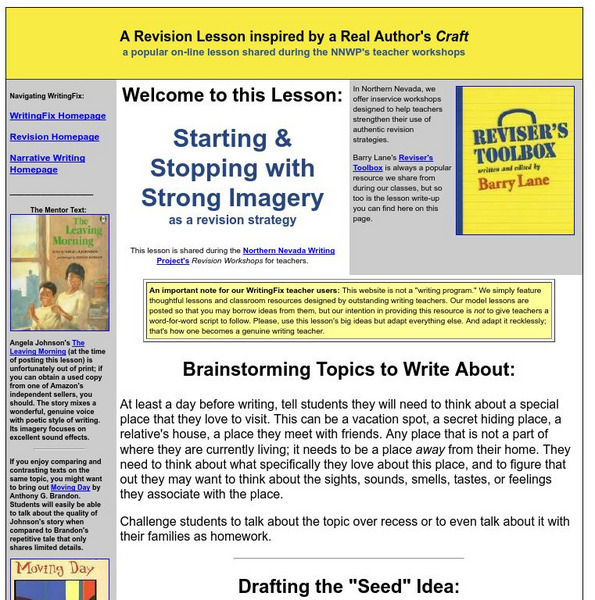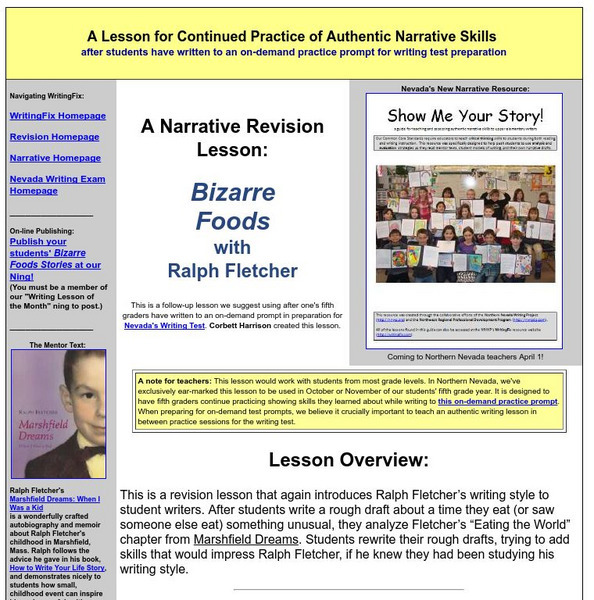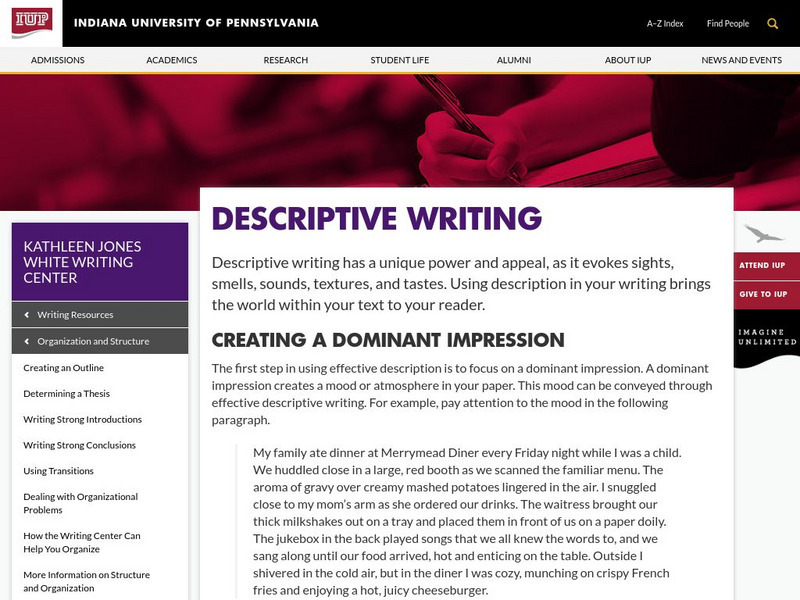Curated OER
Constant Craving
Students experience the effect of sensory stimulation through a guided visualization. They explore possible genetic relationships between drug addiction and the nervous system by reading and discussing, "Genetic Studies Promise a Path to...
Curated OER
The Best Season - Fill In the Blank
In this seasons worksheet, learners use 5 words from a word bank or their own words to complete a paragraph about the seasons. They write an original sentence about their favorite season on the lines below the paragraph.
Curated OER
"De Colores"
First graders learn color words in Spanish through the use of a song. In this Spanish music lesson, 1st graders sing the song "De Colores" to help them learn their color words in Spanish.
Curated OER
The Toilet Paper Solar System
Students classify the planets in the solar system, study planetary objects, and measure the relative distance between planets. In this solar system lesson, students use toilet paper to complete a scale model of the distance between the...
Curated OER
Irish Eyes: Taking a Look at Local Landscape
Pupils create landscape flyers of local landscapes using digital photography, educational software, and examples of Irish landscapes. This creative-project lesson lasts two weeks, including class time spent collecting photographs outside...
Curated OER
Punctuating Dialogue
Sixth graders use narrative strategies (e.g., dialogue and action) to develop characters, plot and setting and maintain a consistent point of view. They create and accurately punctuate dialogue necessary to help the plot progress,...
Curated OER
Poetry on the Prairie
Students explore the history of the Nebraska prairie by looking at different pieces of art. Using the art, they write a poem that captures the essence of a prairie. They use their senses and any feelings or emotions they get from the...
Curated OER
Narrative Strategies
Sixth graders explore strategies authors use to make characters and setting seem real to readers. They develop characters and describe setting in original narratives. Students read myths and determine common themes found in myths from...
Curated OER
Describing Words Lesson (Lesson 2)
First graders create a computer slide show. They select pictures from the gallery, write descriptive words or phrases about the pictures, and develop a three slide presentation.
Curated OER
An Ancient Egyptian Journal Entry
Students, after watching W?hat Does This Show, describe everyday life in ancient Egypt by writing an entry in the journal of an ancient Egyptian man or woman.
Curated OER
The Class Garden Essay
Fifth graders use a class garden as inspiration for a specific writing assignment. They conduct research into different types of flowers in photo images taken with a digital camera. Students write a creative essay and draw a picture to...
Curated OER
The Thrill of Big-Wave Surfing
Students view a PBS Nature program about big-wave surfing and participate in a class discussion about their experiences with surfing, body boarding, or body surfing. Students create a drawing based on a reading and post their art around...
Curated OER
Poetry Portfolio: What's On Your Plate?
Young scholars compile a portfolio of poems. In this poetry portfolio activity, students work in groups to share poetry ideas. Young scholars write their own poems and create a portfolio of their practice poems, rough drafts,...
Curated OER
Voyages of Discovery
Young scholars create individual "travel logs" for a world explorer whom they studied in history class. This lesson is an interdisciplinary activity for the Language Arts and History classroom.
Curated OER
The Princess's Point of View
Everyone wants to be part of a royal family. Let your pupils experience the privilege of royalty by rewriting the story The Frog Prince from the point of view of the princess. While the story line remains the same, perspective is bound...
Curated OER
Lost on a Deserted Island
Third graders practice brainstorming with their classmates as they discuss a role-play situation. For this group discussion lesson, 3rd graders must present ideas of ways to survive on a deserted island by discussing with their...
The Write Place
Literacy Education Online: Sensory Details
This site provides several sample sentences which show sensory details and aid students in writing specific rather than general sentences. It is a good site for someone preparing to write a descriptive essay. W.9-10.3d Precise/sensory...
Better Lesson
Better Lesson: Sensory Details
Students will learn how to enhance their narrative writing by incorporating sensory details to convey experiences and events. A power point presentation on sensory details is included.
Other
Study.com: How to Use Descriptive Details & Sensory Language in Your Writing
When you write a narrative, you can draw your reader into your experiences by adding specific, concrete details and sensory language to your storytelling. This lesson plan tells you exactly how to do it. W.9-10.3d Precise/sensory...
Other
Tesol: Sensory Details Worksheet: Adding Details Add Interest
Use this worksheet to practice enhancing your writing by using sensory language. Sensory details include words that describe sights, sounds, and smells of the setting, characters, and interactions.
Writing Fix
Writing Fix: Starting & Stopping With Strong Imagery: Revision Strategy
In this lesson, students will engage in revising their writings to incorporate sensory images. Students will brainstorm topics of places, away from their home, that are special. Then students will choose and then write a descriptive...
Writing Fix
Writing Fix: Bizarre Foods With Ralph Fletcher: A Narrative Revision Lesson
In this lesson, Ralph Fletcher's writing style is introduced to student writers. Young scholars will write a rough draft about a time they ate, or a time when they saw someone else eat, something unusual. Then students will read and...
Other
Indiana Univerisity of Pennsylvania: Writing Center: Descriptive Writing
This website from the Writing Center at Indiana Univerisity of Pennsylvania focuses on descriptive writing. It includes discussion and examples of the following: Creating a dominant impression or mood, using sensory details, using vivid...

















